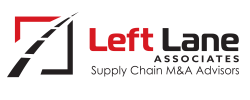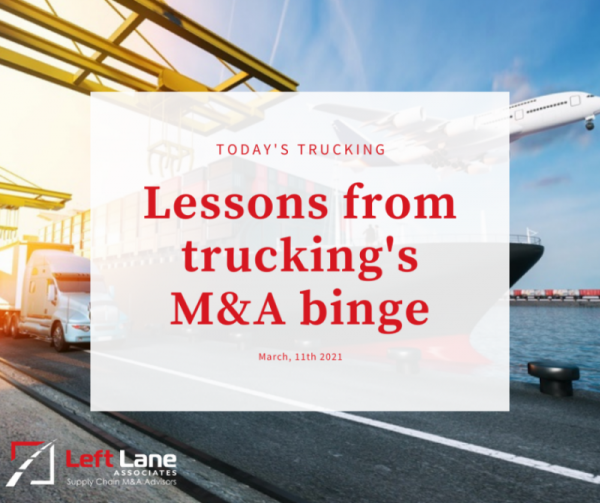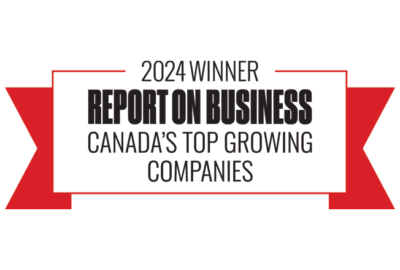Branding - Company
Lessons from trucking’s M&A binge
Not sure if there’s ever been a time in Canada’s trucking industry when M&A lawyers were as busy as they were during the first two months of 2021. Every other day seemed to bring another blockbuster deal.
By my count, there were 16 deals involving Canadian supply chain companies announced during the first 42 business days of the year. I’m sure there were others that weren’t made public because the companies are privately owned or the closing date was pushed later in the year.
There’s a huge appetite for capacity on both sides of the border and owners of fleets of all sizes are trying to figure out whether they’re serving or eating.
Let’s take a look at three recent transactions involving Canadian companies: TFI International acquiring UPS Freight; Titanium Transportation acquiring International Truckload Services (ITS); and Andlauer Healthcare Group (AHG) acquiring 100% of Skelton Canada and 49% of Skelton USA.
Based on news and public reporting (consider this my safe harbor clause), we can learn a few things from the trove of information made available when public companies are involved in a deal.
The acquisitions were free
Hear me out on this.
In other words, in all three cases the value of the enterprise increased by more than the price of the company they bought.
TFI, Titanium, and AHG grew equity value without paying for it. And this is before you factor in the revenue and value of new customers, synergies and increased scale.
I’ve seen the same principles apply when private companies make quality, synergistic purchases.
There’s no one way to integrate
Sometimes there’s so much effort put into getting a deal done that there’s not enough focus on how to integrate the new acquisition into the business.
There’s no template to follow when you’re bringing an acquired company into the fold. The most successful companies I know view each situation as unique.
For instance, the day after its announcement, a Titanium team was on the ground at ITS headquarters in Belleville, Ont., to lay out plans to integrate ITS into Titanium’s operation as quickly as possible.
On the other hand, TFI has a long history of letting business units operate independently, but with accountability to the head office in Montreal. That’s how it’s handling the acquisition of UPS Freight, which has been rebranded “TForce Freight.”
Mullen Group, which announced a letter of intent to acquire APPS Transport Group, takes a similar approach. The idea is not to disrupt what makes the company valuable in the first place.
It pays to specialize
The deal that really fascinates me is AHG’s acquisition of Skelton.
Skelton is a nearly 60-year-old family-run fleet with 100 trucks and 120 trailers in its Canadian business and 70 trucks and 90 trailers on the U.S. side.
The company has carved out a very specific niche: the transportation of refrigerated healthcare products.
“Refrigerated” only begins to describe what they do.
Skelton specializes in moving vaccines, blood and other biologics. Every truck and trailer is validated for temperature by an independent engineering company.
There’s a lot of value in temperature-controlled transportation of medical supplies right now.
AHG paid $114.7 million for Skelton, a 9X multiplier. While the specifics of the agreement haven’t been announced, Skelton’s enterprise value per truck—100 in Canada, 35 in the U.S.—was close to $850,000. That’s off the charts, and Skelton still has controlling interest in its rapidly growing U.S. business.
Will this trucking binge continue?
It’s obvious that I don’t have a crystal ball or I would have bought a lot of TFI, Titanium, AHG and Mullen stock before the start of the year.
But with factors like low cost of capital, high multipliers and rising real estate values there is going to be a lot of horse-trading in the foreseeable future.






Leave a reply
You must be logged in to post a comment.